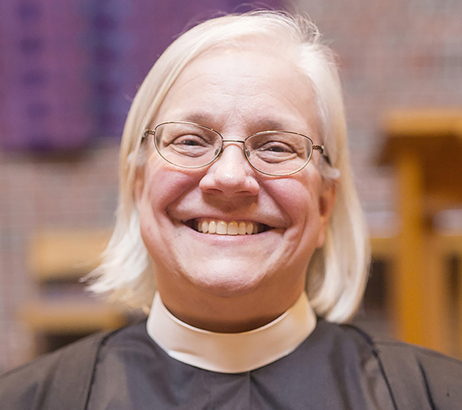Take a census of the whole congregation of Israelites, in their clans, by ancestral houses, according to the number of names, every [one] individually. (Numbers 1:2)
It’s Spring Break at Trinity and at Capital. The first half of the semester has sped by quickly. As we look around us this semester, in the classroom and in worship, we’re seeing some exciting new trends.
We have a total of 63 degree-seeking students this semester, in all degree programs. In addition to those 63, we have several ELCA affiliated students, who are working with Trinity while earning an M.Div. at a non-ELCA seminary. We also have folks, both rostered and lay, who are auditing courses for continuing education or personal enrichment.
At this point, our degree-seeking students are split almost 50/50 between those enrolled in the M.Div. program and those enrolled in the MTS (Master of Theological Studies) program. The growth in enrollment in shorter degree programs is in line with national trends, according to the Association of Theological Schools, the accrediting body for seminaries.
Some alumni have told me of fond memories of living in the Trinity apartment complex. Friendships were formed. Families were begun. Community was fostered. Those things will still happen, but they will happen south of Main Street and in residential facilities that are in better condition than the property we will be selling.
Our current students are also split almost 50/50 between ELCA and other Christian traditions. Among the other traditions present, the next largest group is Baptist students, who are 20% of the student body.
As of this semester, 35% of our students are students of color, primarily African American. The majority of these are local Baptist ministers enrolled in the MTS program.
This semester, 2/3 of our students are taking only one or two courses. Most of these are students who are working full-time alongside their seminary studies.
All of these trends are in keeping with Trinity’s mission of forming leaders for Christ’s church at work in the world. My expanded explanation of the mission statement is: Trinity forms leaders, not just pastors; for Christ’s church, not just the Lutheran church; at work in the world, not just in congregations.
Please join us in giving thanks for the rich diversity of students God has sent us!
The Rev. Kathryn A. Kleinhans, Ph.D.
Dean
